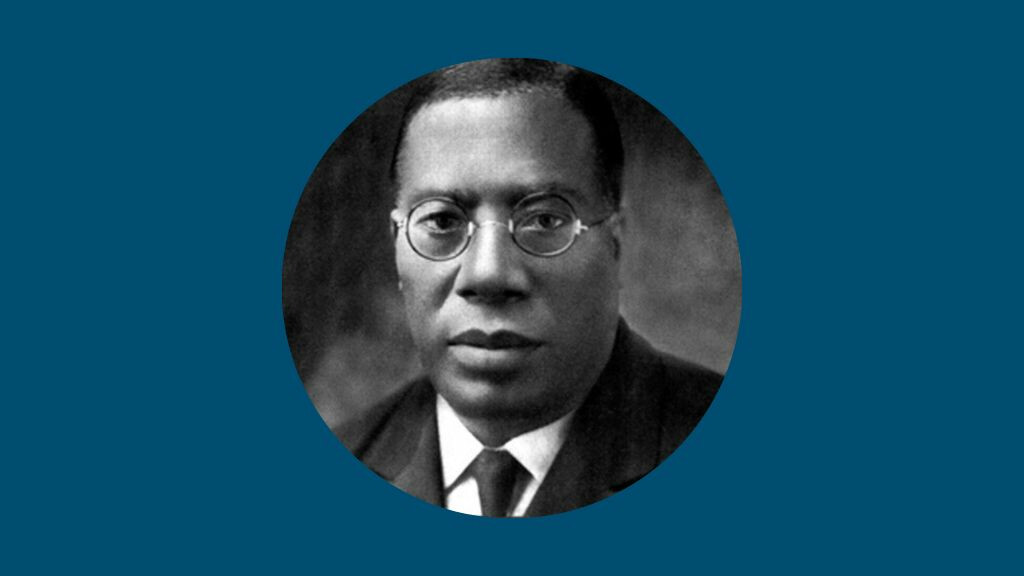
By Jane M. Gardner
presiding evangelist
Can you guess which song from Community Christ Sings has been performed/recorded by Joan Baez, Pete Seeger, Bob Dylan, The Freedom Singers, Bruce Springsteen, and others? It is published in over 200 hymn collections and has been featured in several movies. Martin Luther King Jr. once said, “There’s something about that song that haunts you.”
That song is “We Shall Overcome (CCS 261),” a product of the oral tradition of African slaves. This type of song is easy to sing, adaptable, and fits well within movements seeking fairness and equality. The route of this song to present-day use is complex and not easily traced.
Martin Luther King Jr. once said, "There’s something about that song that haunts you."
Part of the melody seems related to two European songs from the 1700s, “Prayer of the Sicilian Mariners” and “O Santissima.” Enslaved Black people in the United States mixed and matched similar tunes in the songs “I’ll Be All Right” and “No More Auction Block for Me.”
After 1900, it seems that the lyrics of another gospel song, “I’ll Overcome Someday,” by Methodist minister and composer the Reverend Charles Tindley, merged with the earlier music. Tindley (1851-1953), who ministered in Philadelphia at the turn of the twentieth century, penned forty-five songs for his congregation. Tindley’s influence was felt even though the tune and text were continuously alternated.
Listen to an early Smithsonian recording of the song by The Freedom Singers at Youtube.com/watch? V=ZrpmwWG2fC4.
A letter printed on the front page of February 1909, United Mine Workers Journal: “Last year at a strike, we opened every meeting with a prayer, and singing that good old song, ‘We Will Overcome’.” The song was well-known by this time and adapted for a secular context.
The song was published in the People’s Song Bulletin (1947) through the efforts of folk song activist Pete Seeger (1919-2014). The introduction to the bulletin was written by activist Zilphia Horton (1910-1956), who, with husband Miles Horton, founded the Highlander Folk School in 1932, a training school for union organizers in New Market, Tennessee. She has been credited for adapting songs such as “We Shall Overcome” for the civil rights movement.
It soon became the anthem of the civil rights movement of the 1950s and 1960s in the United States. It is a song of courage, comfort, and hope as protesters confronted prejudice and hate in the struggle for equal rights for African Americans.
Pete Seeger created several variants of the text: “I’ll be alright, someday...deep in my heart I do not weep, I’ll be alright someday;” “I’ll wear the crown;” “I’ll be like Him;” and “I’ll overcome, I’ll overcome.” He was credited with the game-changing alteration from “I’ll” to “We’ll,” giving voice to the whole community, not just individuals.
It is a song of courage, comfort, and hope as protesters confronted prejudice and hate in the struggle for equal rights for African Americans.
Seeger credits Louise Shropshire (1913-1993), an African American Baptist choir director, with the updated tune sung today. It turns out that Shropshire was a close friend of Martin Luther King Jr. who used the song, perhaps to its greatest effect, in his final speech on March 31, 1968, in Memphis, Tennessee, four days before his assassination: “We shall overcome. We shall overcome. Deep in my heart I do believe we shall overcome. And I believe it because somehow the arc of the moral universe is long, but it bends towards justice.” Over fifty thousand attendees sang the song days later at King’s funeral.
U.S. Rep. John Lewis wrote about the song's effect in his book, Walking with the Wind: A Memoir of the Movement. “We Shall Overcome” sustained him through years of struggle—especially when demonstrators beaten, arrested, or detained would stand and sing together.
“It gave you a sense of faith, a sense of strength, to continue to struggle, to continue to push on. And you would lose your sense of fear. You were prepared to march into hell’s fire,” Lewis said.
According to Hymnary.org, “We Shall Overcome” has been translated into more than twenty languages and traveled worldwide. It has become a protest song for freedom movements in Northern Ireland, India, China, South Korea, Lebanon, South Africa, and Eastern Europe.
The legacy of 'We Shall Overcome' is still being lived today.
The 2002 film, “Bloody Sunday,” depicts march leader and Member of Parliament Ivan Cooper leading the song shortly before 1972’s Bloody Sunday shootings in Northern Ireland. Other recent film appearances include the 2010 Bollywood movie “My Name Is Khan,” comparing the struggle of Muslims in the United States with that of African Americans. Even more recently, the song plays a prominent role in Lee Daniel’s film “The Butler” (2012).
The legacy of “We Shall Overcome” is still being lived today. It is not a marching song or defiant chorus. It is a promise for which we all yearn: “We shall overcome someday. Deep in my heart, I do believe.”
